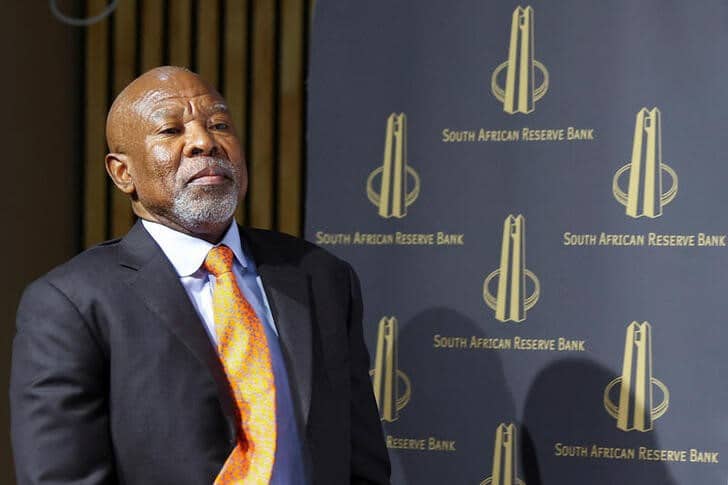
MARRAKECH, Morocco, Oct 11 (Reuters) – The head of South Africa’s central bank said on Wednesday the government needed to rebuild its fiscal buffers to help bring down inflation, and that he expected domestic interest rates to stay higher for longer.
Governments globally need to join central banks in dismantling the stimulus of the COVID pandemic years, Lesetja Kganyago said.
“Fiscal authorities have got to be rebuilding their fiscal buffers so that the process of disinflation is assisted,” he told Reuters in an interview on the sidelines of the International Monetary Fund and World Bank Annual Meetings in Marrakech.
“Failure to disinflate economies would result in higher financing costs for the fiscal authorities and by extension to all of us… It also applies to South Africa.”
In September, the South African Reserve Bank (SARB) kept its main interest rate unchanged at 8.25%, its second pause after 10 consecutive hikes, after inflation edged up to 4.8% in August from 4.7% in July.
The bank’s inflation target range is 3-6%, but it said in September it aimed to hit the middle of that band “sustainably over time”.
Kganyago said he would know more about South Africa’s fiscal trajectory after a budget statement due on Nov. 1.
HSBC economist David Faulkner said in a note to clients that he expected a deficit close to 5.2% of GDP this year, which could widen in the absence of a credible plan to rein in spending and shore up revenues.
The government has forecast a deficit of 4%.
Kganyago said domestic interest rates were expected to remain higher for longer.
He did not know if more hikes were on the horizon, but “the disinflation job is not yet done,” he said.
The bank expected inflation to be sustainably on target in 2025.
Risks to that outlook included high oil prices, global financial conditions and the strong dollar, and food prices reversing their downward trend, Kganyago said.
(Reporting by Rachel Savage, additional reporting by Kopano Gumbi in Johannesburg, editing by John Stonestreet)

